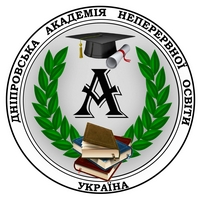DEVELOPMENT OF THE SUBJECT-METHODICAL PROFESSIONAL COMPETENCE OF SECONDARY SCHOOL TEACHERS-PHILOLOGISTS
Abstract
The article examines the problem of developing subject-methodical professional competence of teachers of Ukrainian language and literature, foreign literature in the context of STEM education. Emphasis is placed on the relevance of language and literature school disciplines to STEM education. This is important for a teacher to participate in the formation of STEM competencies during language and literature lessons defined by the Concept of the Development of Science and Mathematics Education. The author considered forms of work on the formation of subject-methodical professional competence of teachers of Ukrainian language and literature, and foreign literature in the context of STEM education in the system of postgraduate pedagogical education. The content of such activities during advanced training courses is specified. There is a list of literary works in the article, which is advisable to work effectively on the formation of STEM competencies. The author defined topics of school programs and examples of tasks based on some works of the course «Ukrainian literature», and the integrated language and literature course «Ukrainian language, Ukrainian literature, Foreign literature», based on which it is advisable to form STEM competencies: cognitive skills, scientific literacy; information processing skills, creativity – qualities that contribute to the creativity of education seekers; the ability to make creative functional decisions, innovativeness; communication skills - effective teamwork, ability to be a leader and executor, etc. Consideration of the problem of the development of the subject-methodical professional competence of teachers of the Ukrainian language and literature, foreign literature in the context of STEM education will contribute to the improvement of the process of improving the qualifications of teachers of philological disciplines and teachers' awareness of the importance of combining the efforts of participants in the educational process in the formation of the necessary competencies of schoolchildren, stimulates inquisitiveness and supports the interest in education of students, forms in students a scientific worldview, the ability to perceive, analyze, interpret, and critically evaluate information.
References
2. Бутурліна О., Артєм’єва О. Модельна навчальна програма «SТEM. 5-6 класи (міжгалузевий інтегрований курс)» для закладів загальної середньої освіти. URL: http://surl.li/cmxjg (дата звернення: 30.11.2023).
3. Вортман Д. Змієві вали без таємниць: Змієві вали Середньої Наддніпрянщини (за Михайлом Кучерою). URL: https://www.istpravda.com.ua/articles/2022/03/15/161067/ (дата звернення: 30.11.2023).
4. Концепція розвитку природничо-математичної освіти (STEM-освіти): розпорядження Кабінету Міністрів України від 05.08.2020 № 960-р. URL: https://zakon.rada.gov.ua/laws/show/960-2020-%D1%80#Text (дата звернення: 30.11.2023).
5. Лобода Г., Гавриляк І. Куди поділись снігурі? Україна молода». 2012. № 3. С. 3–4. URL: https://www.umoloda.kiev.ua/number/2008/116/71504/ (дата звернення: 30.11.2023).
6. Старагіна І. П., Панченков А. О., Терещенко В. М., Романенко Ю. О., Волошенюк О. В., Новосьолова В. І., Блажко М. Б., Ткач П. Б. Українська мова, українська та зарубіжна літератури. Підручник інтегрованого курсу для 5 класу закладів загальної середньої освіти (у 2-х частинах). Ч. 2. Київ: Ґенеза, 2022. 239 с.

 ISSN
ISSN  ISSN
ISSN 

